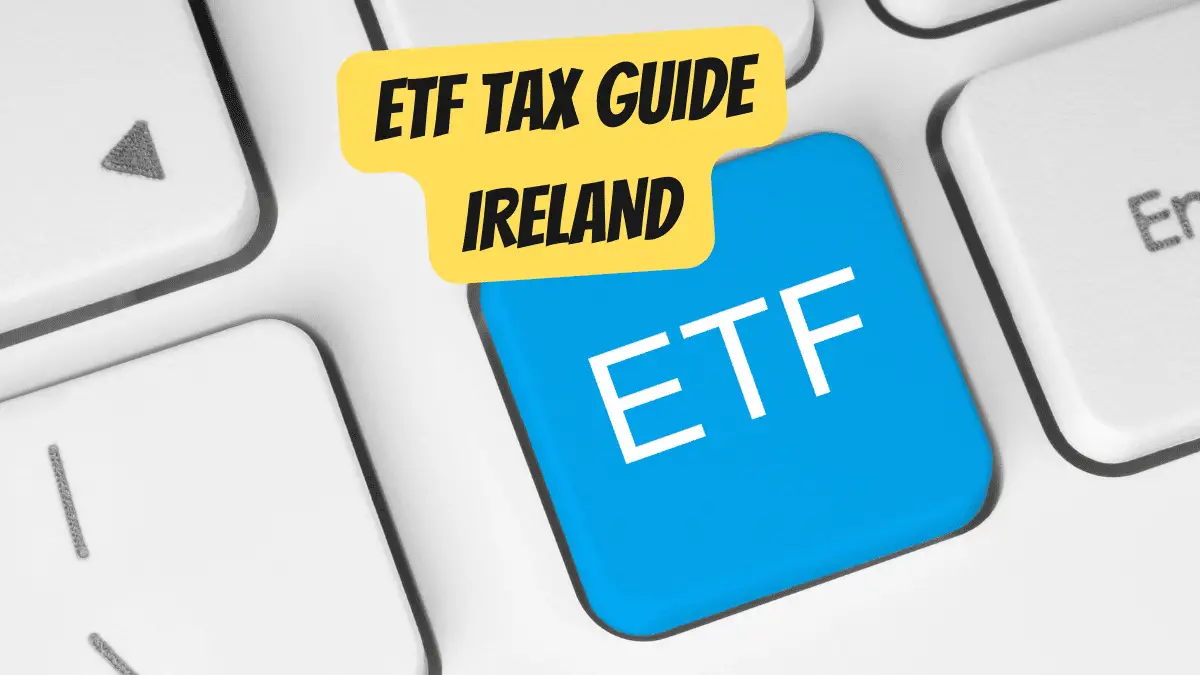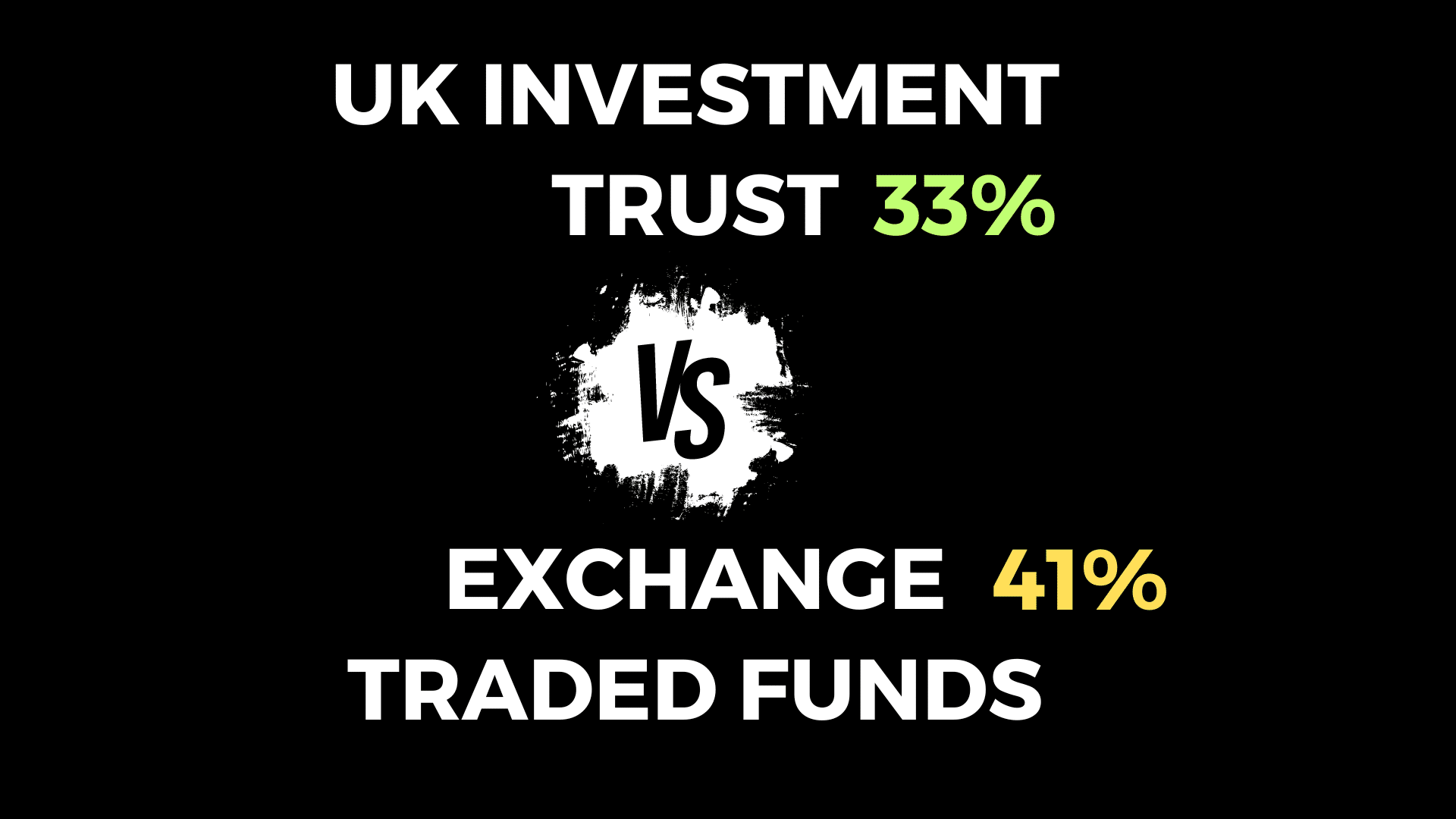New to investing in Ireland? One common mistake made by beginner investors is misunderstanding how ETFs (Exchange Traded Funds) are taxed in Ireland. In this blog post, I will give you the low down on everything you need to know including; the tax rates, how to declare income and profits, and the deemed disposal rule.
How are ETFs taxed in Ireland?
When you invest in ETFs (Exchange Traded Funds) in Ireland your income and profits made on those investments will be subject to Exit tax at a rate of 41%. You will also not receive any annual exemptions or be able to offset any losses against profits made on other investments.
It is important to understand these tax rules before you start investing, as many investors assume all investments are taxed at the capital gains tax rate of 33% but learn afterwards that this is not the case.
The Deemed Disposal Rule
There is an additional tax rule you need to be aware of when investing in ETFs in Ireland and that is the “deemed disposal” rule. This rule stipulates that even if you have not sold your investments, on the 8th anniversary you will have to pay tax of 41% of all unrealised profits earned on your investment to this point.
Accumulating vs Distributing Funds
There is a tax benefit to investing in an accumulating ETF rather than a distributing ETF. Firstly let’s just distinguish between the two different types of ETFs.
A distributing ETF will pay you regular cash dividends on your investment. Once you receive this dividend then you will be liable to exit tax at 41% in the year you receive that income. Whereas an accumulating ETF will automatically reinvest the dividend income resulting in the number of units you have invested growing with every dividend payment. Reinvested dividends on accumulating ETFs will not be taxed until the investment is disposed of or if you reach the deemed disposal term (whichever is earlier).
What happens with losses made on ETFs
Losses made on ETFs in Ireland are not available for offset against gains made on other ETFs or stocks that you own. If you make a loss on your ETF and close your position that loss is gone and cannot be used to reduce your tax bills.
If we compare this to investing in stocks in Ireland. If you invest in two stocks and you make a profit of €2,000 on one and make a loss of €400 on another can offset that loss of €400 against your profits. The result is your taxable gain is €1,600.
If you applied this example but now we are investing in ETFs. The taxable gain in this case would be €2,000 as the €400 loss would not be available for offset.
This is a point that is rarely talked about when deciding whether to invest your money in stocks or ETFs. But is something that should be taken into consideration when deciding what investment vehicle to go with.
The FIFO Rule
FIFO is an acronym you will across and need to be familiar with- it stands for First In First Out.
It is important to use the FIFO rule when you are calculating your profits and losses for tax purposes. Just remember this, whenever you dispose of any of your ETF units, it will always be the oldest units that are disposed of first.
| Date | Buy/Sell | # of Units | Share Price | Cost | Sales Proceeds |
|---|---|---|---|---|---|
| 01-April-2022 | Buy | 3 | 131 | 393 | |
| 01-July-2022 | Buy | 2 | 137 | 274 | |
| 01-Aug-2022 | Buy | 2 | 145 | 290 | |
| 01-Nov-2022 | Sell | -4 | 179 | -716 |
In the above example, the investor disposed of 4 ETF units in November. According to the FIFO rule, the investor should start with the oldest units first when calculating the cost.
Therefore, first they take the 3 units bought in April for €131. Also, they take 1 of the 2 units they bought in July for €137. This leaves them with a total cost of €530 (3 units @ €131 +1 unit @€137).
The total sales proceeds from the sale were €716 and they are then left with a profit for tax purposes of €186.
How to declare income and profits from ETF investing
To declare profits and income earned from investing in ETFs in Ireland, you must register for income tax and submit a Form 11 annually with the Revenue Commissioner. Income earned or profits earned in 2022 will have to be filed by 31 October 2023.
The relevant section on the Form 11 is Section 321 which allows you to declare income for investments in Offshore Funds.

You can register for income tax through your ‘my account’ on Revenue.ie by managing your tax registrations.
The Revenue Commissioner has not made it easy on investors to declare income and profits made from investing in ETFs. There is an added level of administration for investors when investing in ETFs that might require some to need to use an accountant to sort out their taxes.
Are there any loopholes to avoid paying exit tax on ETFs in Ireland?
In the past, some investors could get away with paying a 33% capital gains tax rate on the US domiciled ETFs. This loophole was all but closed at the start of 2022.
Find a full report of this change in our below blog post:
An alternative to investing in ETFs would be to use Trading 212’s PIE feature which allows you to automatically diversify your investment in a set ratio on a consistent basis. But it would be virtually impossible to recreate the S&P500 in PIE. The advantage of this however is you still get the diversification and you also get the lower tax rate of 33% as well as the annual exemption of €1,270.
Best place to invest in ETFs from Ireland
If you are solely looking to invest in ETFs, then one of the best low-cost brokerages open to Irish investors for ETF investing is Degiro.
The biggest benefit of using Degiro for ETF investing is the sheer choice you are given with ETFs on offer from 19 different exchanges. Also, Degiro have a core selection of 200 ETFs that you can trade commission free. You can check out this selection here.
If you are not yet a Degiro customer then – sign up to get €100 in free commission through our affiliate link (SIGN UP HERE).
Disclaimer: This blog post is for informational and educational purposes only and should not be construed as financial advice.







